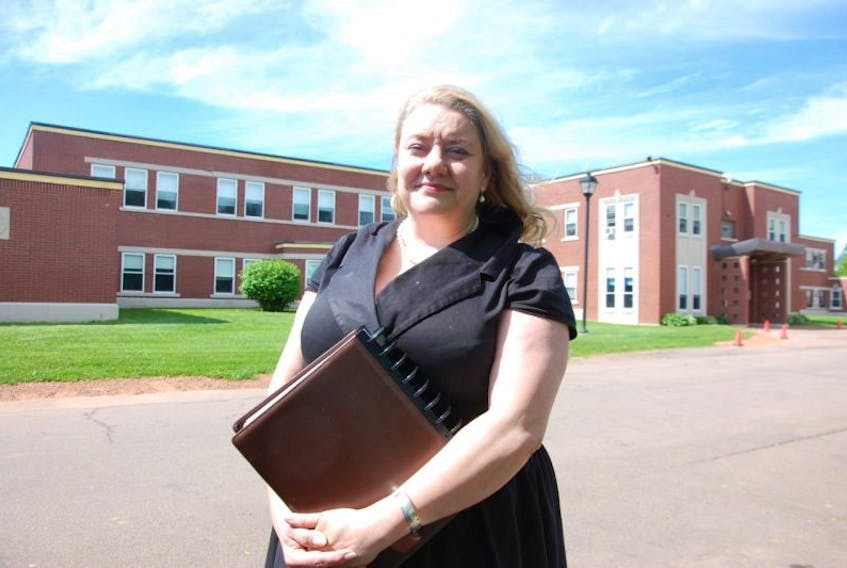COVID-19 has meant change and disruption for all Islanders. Just as individuals and families’ lives have been upended and forced to changes, Health PEI services, including Mental Health and Addictions, had to evolve to respond to the threat of COVID while providing the best service possible.
As the chief of mental health and addictions and a psychiatrist who continues to work weekly on the frontline in the emergency rooms and clinics on P.E.I., I wish to highlight the guiding principles which I used in the decision-making process during COVID-19:
- Safety. The goal of the COVID-19 response is to keep people safe. All people. Patients were moved out of Unit 9 at the QEH to create more space for COVID-19 admissions. Patients were not discharged unless they were ready. There was a decrease in demand in March and April for inpatient beds in psychiatry. An inpatient unit remained at the Prince County Hospital, which provided important care for Islanders during this time, as well as at the Hillsborough Hospital.
- Safety. As the reinstatement of regular services began in June and July, psychiatrists unanimously voted to reinstate Unit 9 for psychiatry patients. This was immediately supported by the Department of Health and Wellness and directions were given to the stakeholders at Health P.E.I. through the CEO.
- Safety. In order to reinstate psychiatry patients on Unit 9, the non-acutely ill (Alternate Level of Care) geriatric patients occupying the beds need to be placed in appropriate environments. Many of these patients require long-term care and some require locked facilities because they wander. These placements take time and co-ordination across the health system.
- Safety. Acutely ill psychiatry patients require the specialized housing provided on Unit 9. Those who need admission are admitted because they cannot be adequately and safely treated at home, in walk-in clinics or in emergency departments. That is why psychiatrists, Health P.E.I. and the Department of Health and Wellness are working together to reinstate this service by the end of October.
- Safety. The Virtual Psychiatry Assessment Service was established to protect patients in their homes with faster access to psychiatry supports during COVID-19. This service has been vital for access to psychiatry for Islanders throughout COVID-19.
Before COVID-19, the wait time to see adults for an initial psychiatry assessment was more than 350 days, and the children and adolescents wait time were 150-plus days. Now with this service, psychiatrists can see patients in their own homes, in long-term care facilities and in community-care facilities safely.
Urgent cases are seen first and the wait-time for adults to be seen has dropped to between seven and 14 days in October. The wait time to see a child and adolescent patient also dropped to between seven and 14 days in July, but has since risen to 28 days, due in part to the success of the service encouraging more referrals from physicians.
This service has gained national attention and was most recently used as a case study for the federal Public Policy Forum in Ottawa. With this, more out-of-province psychiatrists are applying to work on P.E.I. This week we signed a psychiatrist from Ontario to assist with our on-call service. Another has agreed to expand to her child and adolescent work to assist with the increasing referrals. With increased, timely access to psychiatric assessments, patients are treated more quickly before they get so ill that they require admission to our acute care hospitals.
We have made many other innovations, through the dedication of our staff, to meet the needs of Islanders. We established Psychiatry Urgent Care Clinics (PUCCs) at Hillsborough Hospital and Prince County Hospital, allowing assessments and admissions away from the emergency departments, reducing the volume in emergency by 40 per cent.
Patients at the PUCCs have reported high satisfaction with the service, especially the shorter wait times to see a mental health specialist or psychiatrist. The entire mental health and addictions team, including staff and physicians from across the province, have done an excellent job of supporting both the health system and our patients.
Our teamwork, creativity and commitment will guide us to manage ALC patients, reopen Unit 9 and protect our populations from COVID-19.
This work has not been without challenges. Hospitals are designed and staffed to treat acutely ill patients. But staffing is difficult to maintain when non-hospital jobs are available with attractive schedules and salaries and fewer clinical challenges. This is similarly true for our long-term care facilities.
Though stigma still exists within our culture on P.E.I., our current challenge is not about valuing medically ill patients over psychiatrically ill patients. Rather, this is about our need to do things differently for the benefit of all.
In order to maintain our services and continue to improve and innovate, we need to appreciate and protect our frontline staff, such as our registered nurses and LPNs. We must advocate for their safe and respectful treatment within the workplace. We need to encourage our youth to urgently enter these professions. It is a privilege to provide meaningful care to people when they and their families are at their most vulnerable.
I have been asked many times why, considering my options, I ended up in psychiatry. It was a decision by default for a female student wanting to start a family where my initial chosen field of ENT surgery meant I would be on call, living in the hospital every second day. But psychiatry surprised me. Patients get well. Patients and families are incredibly appreciative for the help they receive. And it is a privilege – a privilege to have individuals trust you with their stories and to share their struggles. It is for the sake of the Islanders who trust us that Health P.E.I. and the Department of Health must continue to work to provide compassion, dignity and safety for all.
Dr. Heather is the chief of mental health and addictions for the province of Prince Edward Island.









